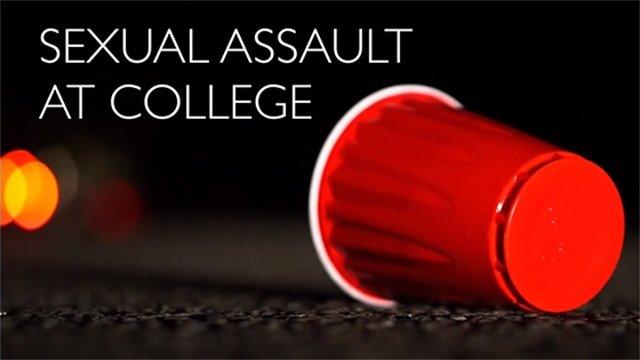Will Stanford sexual assault case silence future victims?
- Published
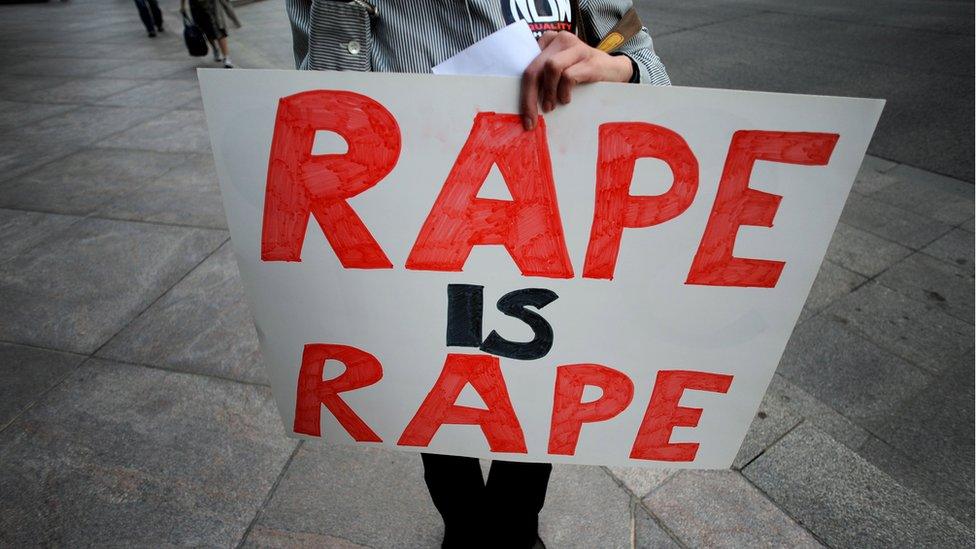
How long should convicted rapists spend in jail?
There's been an outcry over the six-month jail sentence handed to a Stanford university student who was convicted of sexually assaulting an unconscious woman. Some survivors say the judge's decision could deter victims in other cases from coming forward.
Her powerful victim statement, external conveyed, in brutal and honest detail, how she endured a sexual assault in January 2015.
"I am not just a drunk victim at a frat party found behind a dumpster, while you are the All-American swimmer at a top university, innocent until proven guilty, with so much at stake.
"I am a human being who has been irreversibly hurt, my life was put on hold for over a year, waiting to figure out if I was worth something."
The unnamed young woman who was sexually assaulted on the campus of Stanford university, detailed how Brock Allen Turner, a star athlete at Stanford, became Brock Allen Turner, her attacker.
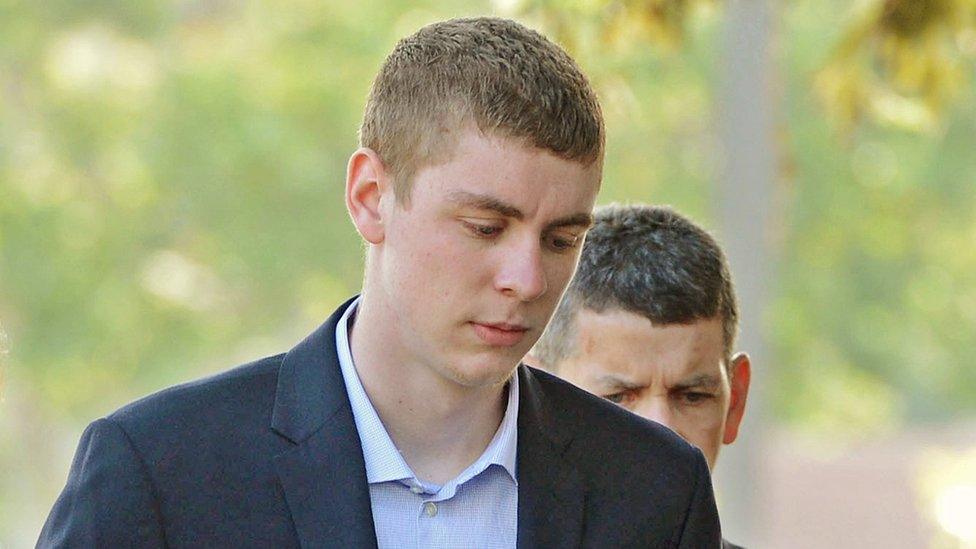
Brock Turner was seen by two witnesses sexually assaulting an unconscious woman
A jury in California found the 20-year-old guilty on all three counts of sexual assault. Prosecutors asked for six years, but Judge Aaron Persky sentenced him to six months in jail and probation, even though the maximum penalty was up to 14 years.
The judge said a longer jail term would have "a severe impact" on Turner.
To many survivors, the judge's comments about Turner highlight a narrative around sex crimes, which favours the attacker ahead of the victim.
Julia Dixon was sexually assaulted while she was a student at the University of Akron, Ohio. Her attacker was sentenced to 180 days in prison, but served just three.
Julia Dixon has filed a complaint against her university for the way it handled her sexual assault case.
"I still consider it a victory. It's a victory within a tragedy because so many people don't get that far," she said.
Her assailant pleaded guilty to lesser charges as part of a plea deal, but Julia believes sentences for rape and sexual assaults should be longer, at least 15 years, so the punishment is commensurate with the crime.
"It's probably going to affect me my whole life. For my attacker, (the sentence) needs to be as long as it will take for him to understand the ramifications of his actions."
Brock Turner's father, Dan Turner, said his son did not deserve a long sentence, for "20 minutes of action", because he had no prior criminal history and had never been violent toward anyone.
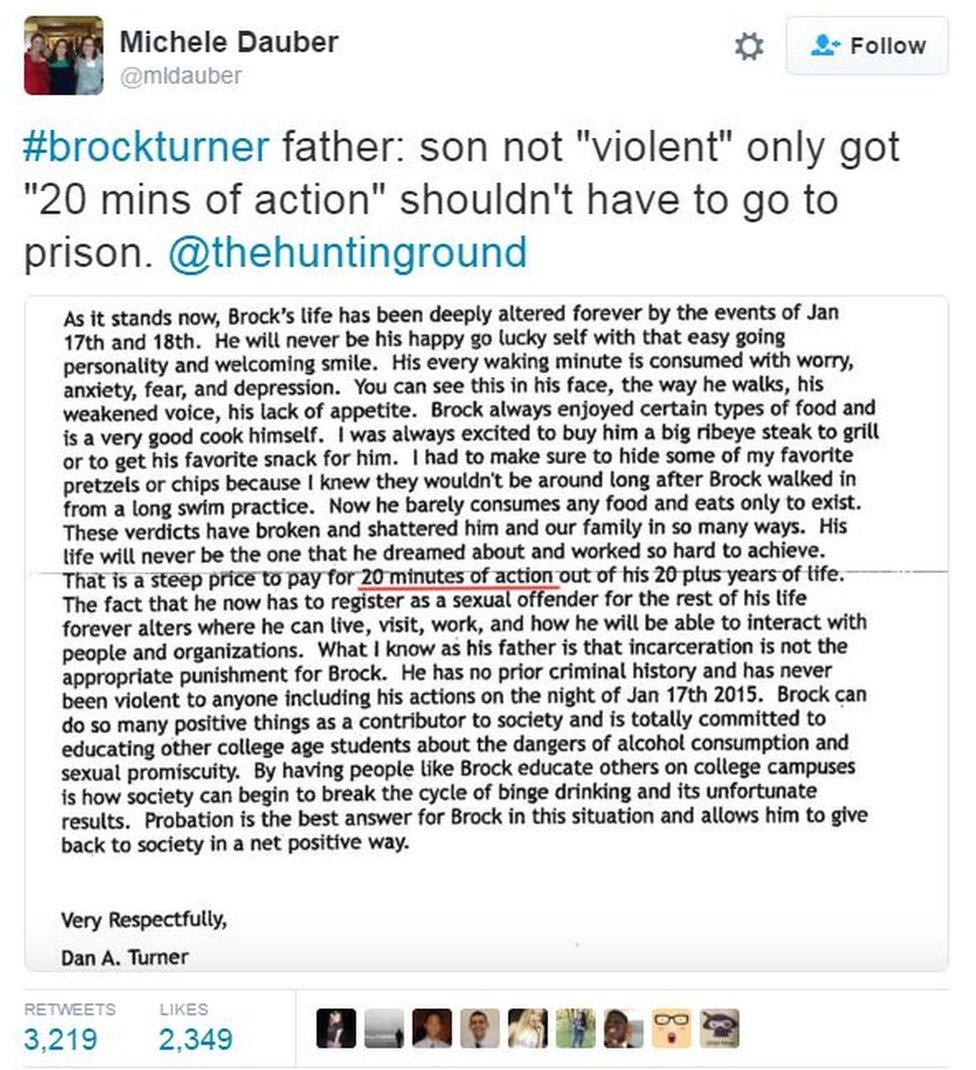
"She had her whole future ahead of her too, and it's been upended through no fault of her own," added Julia.
"As someone put it to me, we seem to judge perpetrators on their potential, while we judge victims on their past."
The strongest indicator of whether someone might commit a sexual assault, is whether someone has already committed one. Some experts argue longer sentences would act as a deterrent.
In 2014, President Obama and Vice President Joe Biden launched an awareness campaign, external around issues of sexual violence on university and college campuses in America. Their guidelines included a promise to provide specialised training for law enforcement and prosecutors, and a pledge to increase arrest and conviction rates.
The vast majority of rapes and sexual assaults are still not reported to law enforcement agencies in the US. Among college women, only about 12% of rape complaints made it to the police.

Fabiana Diaz, who was sexually assaulted on her second day at university in Michigan, was told by a prosecutor that it wasn't worth pursuing a case. "It would be a lot for you to handle," she was told.
Her attacker was popular on campus, which also made it harder for some people to take her seriously. "My reputation was as the person who cried rape," she added.
"I think rapists are protected. The universities don't do anything. The system is broken. This Stanford case has just proved that."
Fabiana, who along with Julia appeared on stage at the Oscars with Lady Gaga and other survivors of sexual assault, believes Turner's background and race were also a factor.
"If he had been black, he would have gotten 15 years. If he was Hispanic, he would have too. If he was anything but white and privileged. How do you know he's learned his lesson?"
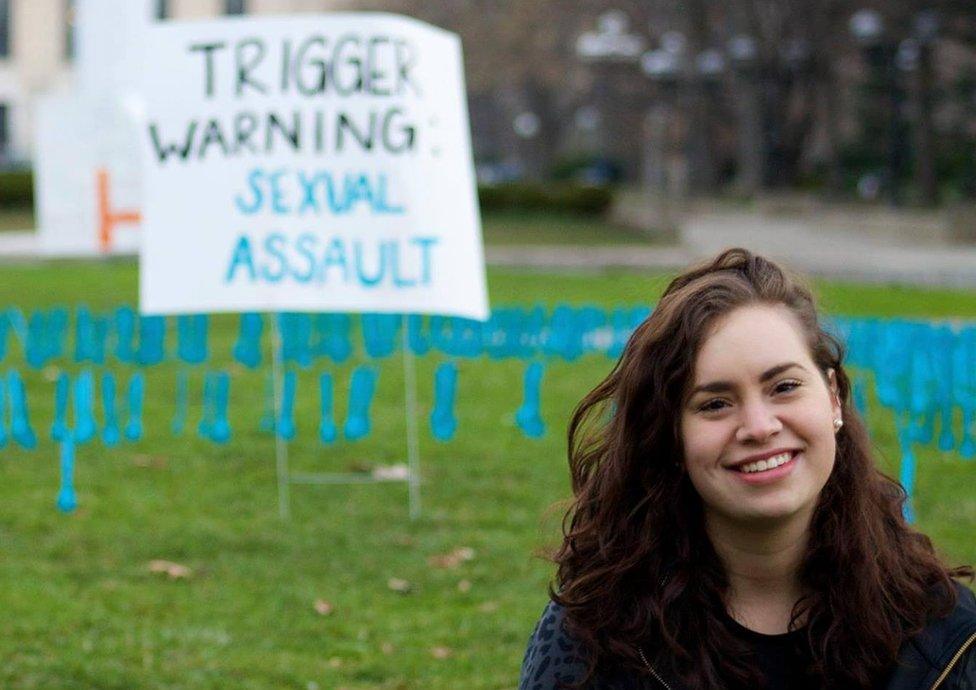
Fabiana Diaz was told not to pursue her sexual assault case
Other survivors believe the outcome of the case could discourage other victims from coming forward.
A former Stanford student, who did not want to be named, told the BBC she had plenty of evidence to pursue a case but decided against it because she had no faith that the courts would punish her attacker appropriately.
"I commended the bravery of the woman in the Stanford case," the ex-student said. "To come forward and write that letter, and process what others feel but don't have a platform to say. She carried a lot of people on her back in writing that victim statement."
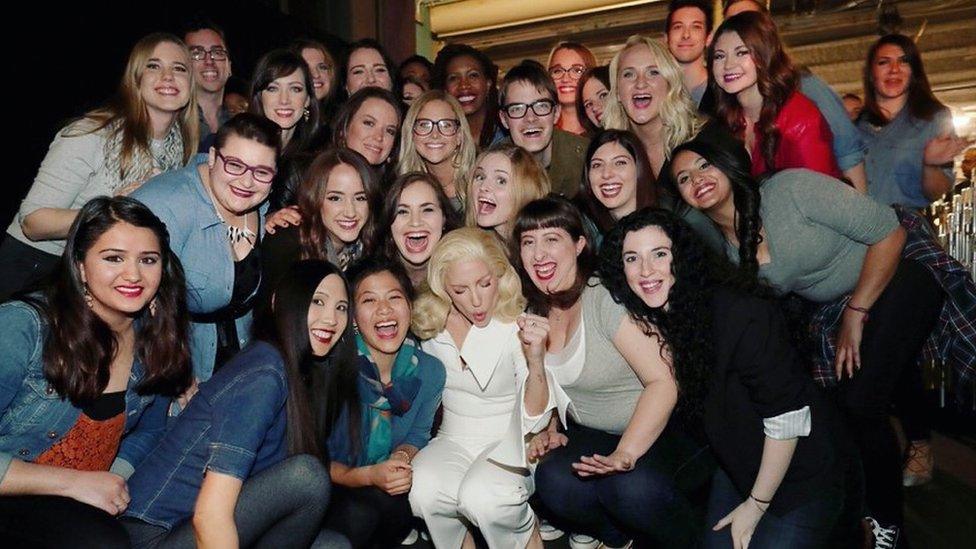
Julia and Fabiana appeared onstage with Lady Gaga at the Oscars
And for these survivors, that means at least something positive has come from the Stanford case.
More people are talking about the issues around rape and sexual assault. Breaking the silence is the first step in encouraging more people to come forward and pursue justice - whatever that looks like.
Follow Rajini Vaidyanathan on Twitter -@BBCRajiniv, external
- Published20 February 2014
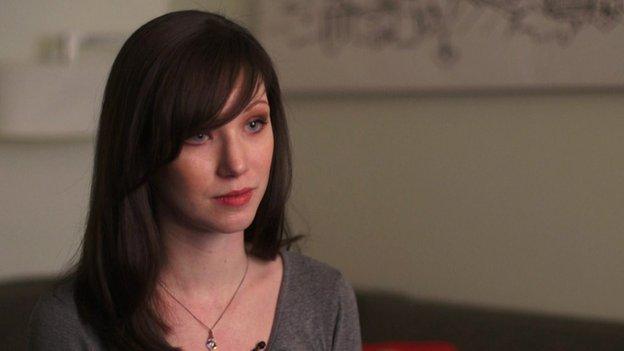
- Published1 October 2014
